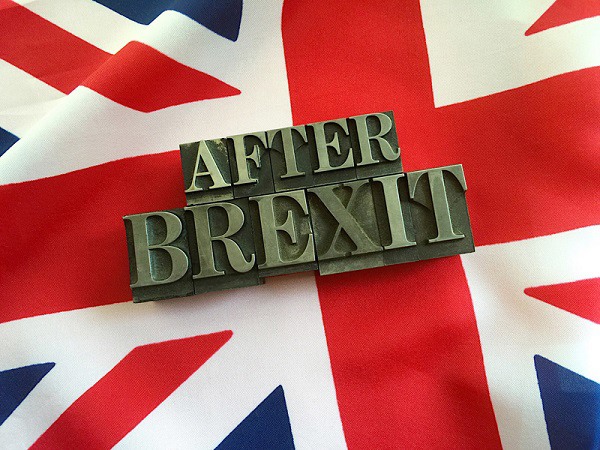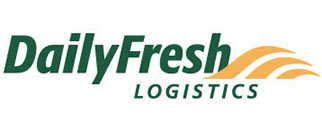 Brexit has been a fact for a year now. Yet, it still weighs on many people's minds. For example, in September, the United Kingdom announced that it was again delaying the further phasing in parts of the Border Operating Model. The Dutch Ministry of Agriculture, Nature, and Food Quality says the UK government blames COVID-19 for this postponement. The pandemic is having an ongoing impact on British businesses, specifically regarding phytosanitary certificates and physical checks for veterinary and phytosanitary products.
Brexit has been a fact for a year now. Yet, it still weighs on many people's minds. For example, in September, the United Kingdom announced that it was again delaying the further phasing in parts of the Border Operating Model. The Dutch Ministry of Agriculture, Nature, and Food Quality says the UK government blames COVID-19 for this postponement. The pandemic is having an ongoing impact on British businesses, specifically regarding phytosanitary certificates and physical checks for veterinary and phytosanitary products.
These were to be introduced on January 1, 2022. These will now only be introduced on July 1, 2022. Philip de Jong sits on the Dutch agricultural council for the UK. In an interview with Agroberichten Buitenland, he says exporting will undoubtedly be more difficult than before. "It's up to my colleagues and me to keep all stakeholders in the Netherlands well informed. And perhaps more importantly, to try to make these new rules are as practically compatible as possible in our export chain. We're in talks with the British government about this."
Third-largest sales market
This agricultural council uses trade figures to illustrate the importance of this. "We're talking about annual exports of almost €8.5 billion. That makes the United Kingdom the third-largest market for Dutch agricultural products after Germany and Belgium. The Netherlands sends not only vegetables, fruits, and dairy products there. But also meat, ornamental plants, and plant starting materials."
"Everything goes there, in enormous quantities. The UK's food supply, as well as its ornamental plant sector, are highly dependent on Dutch imports. So, there's a lot at stake," says Philip. Where better than the transport sector to find out how things are going. And what future expectations are after the first post-Brexit year.
Distinctive
"We had no choice - the United Kingdom represents our core business area," says Marcus Post of the Daily Logistics Group (DLG) about their Brexit preparations. This Dutch company focuses on multi-modular, refrigerated food product transport. They operate throughout Europe and the UK.

He says exporting to and from the UK has become a particularly complex process with many more stakeholders than before. To maintain smooth contact with those involved parties - like Portbase, customs, KCB, forwarders, and brokers - ICT links have been made. And work instructions drawn up and agreements made.
Smooth
"To see the whole procedure go into effect on January 1, 2021, after extensive testing, was quite nerve-racking. Our peak season starts in March. That allowed us and our customers to get used to all the new processes. We tried to solve all the still-existing challenges. And to smooth out the process. Those preparations cost us a lot of time, energy, and money."
"We had to unburden our clients in all things Brexit. But, we also got the opportunity to develop in new product groups. That's thanks to the full service we provide," explains Marcus. Another factor is that several carriers for whom the United Kingdom does not represent core business have dropped out. "They're saying, 'since the UK requires such an extensive process now, we no longer go there'."
Capacity issues
Marcus is grateful for how logistics providers and various Dutch and British authorities have arranged the entire Brexit process. Communication between the British and Dutch authorities is, however, not always optimal. That sometimes leads to delays. "Then our product remains on a trailer too long. That's detrimental to its quality. It's challenging to have to depend on multiple stakeholders," he says.
"Especially while your clients, nor you, can do anything about it." The biggest cause of the capacity problems? The labor market shortages the UK is facing. "This plays out in the driver area, but also in the distribution centers in the UK. As a result, it takes longer for things like loading and unloading," continues Marcus. This capacity problem is also causing costs to rise. "These issues are affecting us too. And we have to discuss them with our customers."
Pricier
Marcus says employment agencies, charters, and driver costs are considerable in the UK. DLG often used to transport goods to the UK unaccompanied. That is when the driver puts the trailer on the ferry on the Dutch side, and it is picked up on the British side. Due to driver shortages, drivers increasingly accompany these. "So, the truck goes on the ferry too. Cabotage rules have changed temporarily," he adds.

"You can now drive in the UK for two weeks before you have to leave. That used to be three trips. That's why we use more Dutch vehicles. We go to the UK to unload and drive trips. Then our drivers come back, possibly with return cargo." Marcus says DLG is doing its utmost to circumnavigate the UK's capacity problems.
The Brexit landscape
The IPAFFS (Import of products, animals, food, and feed system) and GVMS (goods vehicle movement service) were supposed to have kicked in on January 1. That means many changes on the UK side. Also, pre-entry must be done before the goods depart. As of July 1, 2022, various products and most fruits and vegetables will have to have a phytosanitary certificate.
"We're making preparations along with the KCB (Dutch Quality Control Bureau). This body issues the phytosanitary certificates. Our Brexit team is in weekly contact with them, and there are positive developments," Marcus reports. He says that, for instance, work is being done on company recognition. The Fresh Produce Centre and its members initiated that. "Those are interesting developments, which will probably allow the process to continue smoothly."
"At DLG DailyFresh, 3,000 pallets go through the warehouse every day during the season. Should the KCB have to inspect them all in the warehouse, it will greatly delay the process. Things like tomatoes are fresh products. They must be on store shelves as quickly as possible. It can't take a few hours longer." In its preparations, DLG is assuming the most complex scenario.
Unburdening
"These changes mean stricter rules. We all have to ensure that everything is kosher before we leave the Netherlands or the UK," says Marcus. He points out that things not being in order before departure could have major consequences. "We want to avoid that. That's why we offer to take care of the entire Brexit process."
"Then we can keep an eye on the entire trailer." He says keeping the lead time as short as possible is why DLG wants to do this in-house. "We can unburden clients, Brexit-wise. That benefits fruit and vegetable trade from the EU to the UK," Marcus concludes.
Marcus Post
Daily Logistics Group
Marcus Post
+31(0)174 531 792
[email protected]
www.dlg-logistics.com
Source: Agroberichtenbuitenland.nl










